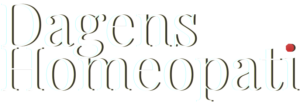There is no argument against homeopathy which stands up to scientific scrutiny. They are simply slogans, distortions and downright lies. Overleaf we provide more information.
Evidence for homeopathy
In 2004 a health technology assessment (HTA) was completed for the Swiss government. It concluded that “the individual CAM interventions, especially homeopathy, were effective, under Swiss conditions safe and, as far as could be judged from the trial situation, also cost-efficient”. Of the 13 authors, 10 were medically qualified, and six were also qualified in homeopathy. The other three were trained in physics or sociology. Eight of the authors held academic positions. As a result of this report access to homeopathy is now a part of the Swiss constitution.
The attacks on homeopathy Shang et al.: All the attacks on homeopathy essentially rely on a single study, known as Shang et al. It was published in 2005 in the Lancet alongside an editorial claiming this was the end of homeopathy. Researchers very soon pointed out the study did not meet the Lancet’s own publication standards, especially as it’s conclusions depended on a very particular (and unexplained) choice of information.
Sense About Science: In 2006 a leaflet attacking homeopathy was published by Sense About Science. Between 2004 and 2009 this charity received 35.7% of its donation funding from the pharmaceutical industry. The author of the leaflet, Chris Tyler, had no qualifications in medicine or homeopathy. The only homeopathy research he cited was Shang et al.
Parliament: Chris Tyler then became a key parliamentary advisor, and “pioneered the Science and Technology Committee’s ‘Evidence Check’ programme”. This committee’s report on homeopathy was published in 2010. It too did not meet normal scientific standards, and relied almost entirely on Shang et al. Out of 14 committee members, only three voted for the report. Of these, two had connections to organisations opposed to homeopathy (including Sense About Science), and two had not attended the hearings.
Trick or Treatment: In 2008 Simon Singh and Edzard Ernst published a book which particularly attacked homeopathy. Neither of them are qualified in homeopathy, though Ernst is a qualified doctor. Simon Singh is a trustee of Sense About Science. Hardly surprisingly, this book misrepresented the facts, disregarded normal scientific standards, and relied heavily on Shang et al. for its case against homeopathy.
Randomised controlled trials
44% of randomised controlled trials (RCTs) of homeopathy are positive and only 7% negative. 49% of RCTs of homeopathy are inconclusive, but 49% of RCTs of conventional medicine are also inconclusive. This unreliability of RCTs means that many conventional drugs tested by RCTs subsequently have to be withdrawn because they are harmful. Furthermore, 51% of the 2,500 most commonly used treatments in the NHS have no RCT evidence of effectiveness.
References and further information are available on website: www.hmc21.org Homeopathy: Medicine for the 21st Century (H:MC21) is a registered charity (no. 1124711).
Läs mer på Homeopathy: Medicine for the 21st Century
Upptäck mer från Dagens Homeopati
Prenumerera för att få de senaste inläggen skickade till din e-post.









